Architecture: Styles, History & Practical Design Tips
Some buildings took centuries to finish; their details still shape how we design today. This page pulls together clear, useful guides on major architectural styles, practical identification tips, and real-world advice for design or preservation projects. You’ll find short explainers on Gothic, Baroque, Beaux-Arts, Renaissance, Byzantine, Romanesque, Georgian, Federal, Italianate, Mediterranean, Deconstructivism, High-tech, Constructivist, Greek Revival, and modern sustainable approaches.
How to read architectural styles
Want to tell a Gothic from a Georgian without a guidebook? Look for 3 quick clues: form, details, and materials. Form covers the big shapes — pointed arches and flying buttresses point to Gothic; domes and mosaics hint at Byzantine; symmetrical facades and balanced windows usually mean Georgian or Federal. Details are ornament and trim: heavy sculptural decoration and dramatic curves often mean Baroque; classical columns and pediments signal Greek or Renaissance influence. Materials help confirm your guess — stone vaults and stained glass belong with medieval styles, while steel, glass, and exposed structure show high-tech or Deconstructivist work.
When you’re on site, focus on scale and rhythm. Count window bays, note rooflines, and watch how ornament is repeated. A single element, like a cornice or a pilaster, often repeats across a whole building and reveals its style family.
Using historic styles in modern projects
Planning a renovation or new build that nods to the past? Start with function first. Preserve or recreate defining elements that affect structure and user experience — entries, window shapes, and roof profiles — then adapt systems like insulation, HVAC, and wiring to current codes. For historic façades, match mortar and stone types where visible, but use modern backing materials for stability and energy performance.
If you’re aiming for a style-inspired modern interior, pick one clear historical reference and translate it simply: a Baroque sense of drama can come from lighting and curvature rather than full ornament; a Mediterranean feel might be achieved with terracotta tiles and arched openings without copying old construction methods. For public projects or restorations, consult preservation guidelines early and involve conservators for fragile elements like frescoes, mosaics, or carved stone.
Sustainability and preservation can work together. Upgrades like secondary glazing, breathable insulation, and discreet solar panels reduce energy use while keeping character. High-tech solutions — prefabricated panels, smart controls, and lightweight structural systems — let you keep the look of a historic style while meeting modern needs.
Curious which styles appeal to you? Browse our articles for visual examples, step-by-step preservation tips, and hands-on advice for designers and homeowners. Ready to explore buildings that tell a story and learn how to work with their past rather than erase it?
Beaux-Arts Architecture: Stunning History, Design, and Iconic Examples
Dive into the vibrant world of Beaux-Arts architecture—its bold history, trademark design features, and legendary buildings that still mesmerize today.
Read more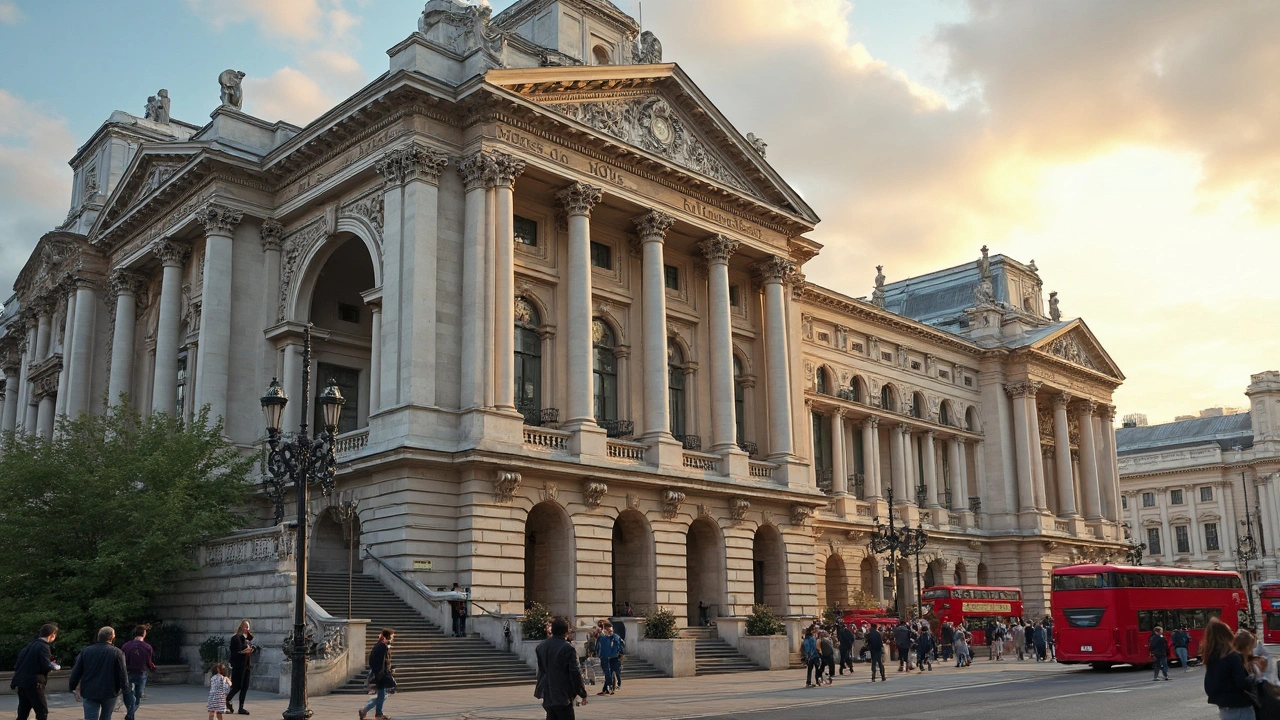
Preserving Beaux-Arts Architecture: Techniques, Challenges, and Modern Impact
Discover why Beaux-Arts architecture matters, its conservation challenges, working preservation tips, and why these grand buildings still inspire in today's cities.
Read more
The Renaissance Revival: Rediscovering Architectural Excellence
Renaissance Revival architecture, with its rich intricate details and inspiration drawn from the past, is seeing a resurgence in modern times. This style is characterized by grandeur, symmetry, and classical elements, often recalling the splendor of European historical greatness. We will explore its distinctive features, offer tips on incorporating Renaissance Revival elements into modern spaces, and highlight notable structures embracing this timeless design. Whether you're a design enthusiast or renovating your home, there's something fascinating in this architectural style.
Read more
Gothic Revival Architecture: Blending Old-World Charm with Modern Flair
Gothic Revival architecture cleverly balances historical charm with modern design, reviving medieval elements for contemporary tastes. This style is recognizable by its pointed arches, ribbed vaults, and flying buttresses, originally inspired by the medieval Gothic design. As it rose to prominence in the 19th century, it encouraged the use of advanced building techniques and materials, influencing many modern architects. Today, Gothic Revival continues to fascinate by blending historical aesthetics with modern sensibilities.
Read more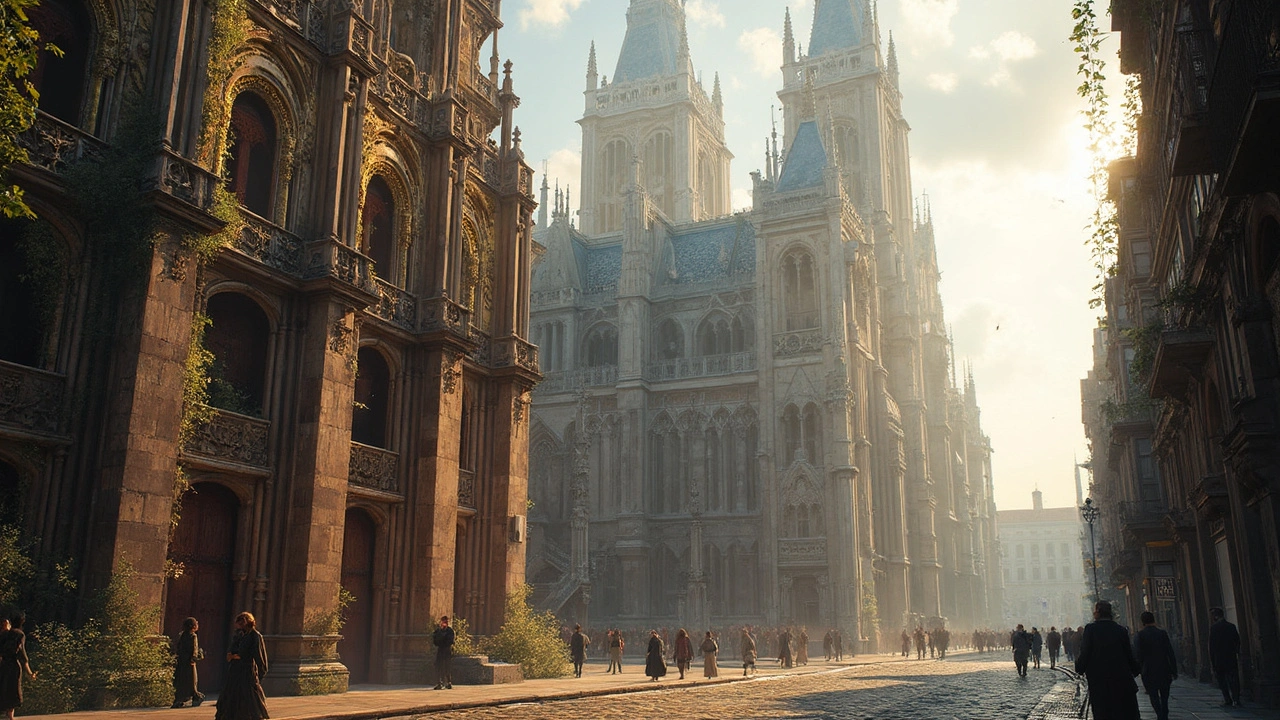
Baroque Architecture: Where Art Meets Faith
Baroque architecture is not just about grand buildings but about the spirit of an era where art and religion intertwined. Emerging in the 17th century, it emphasized grandeur, drama, and movement, reflecting the power and glory of the church. This article explores how Baroque architecture changed the landscape of religious buildings and left an enduring mark on art and design. Dive into the ornate details and understand how this style continues to capture imaginations.
Read more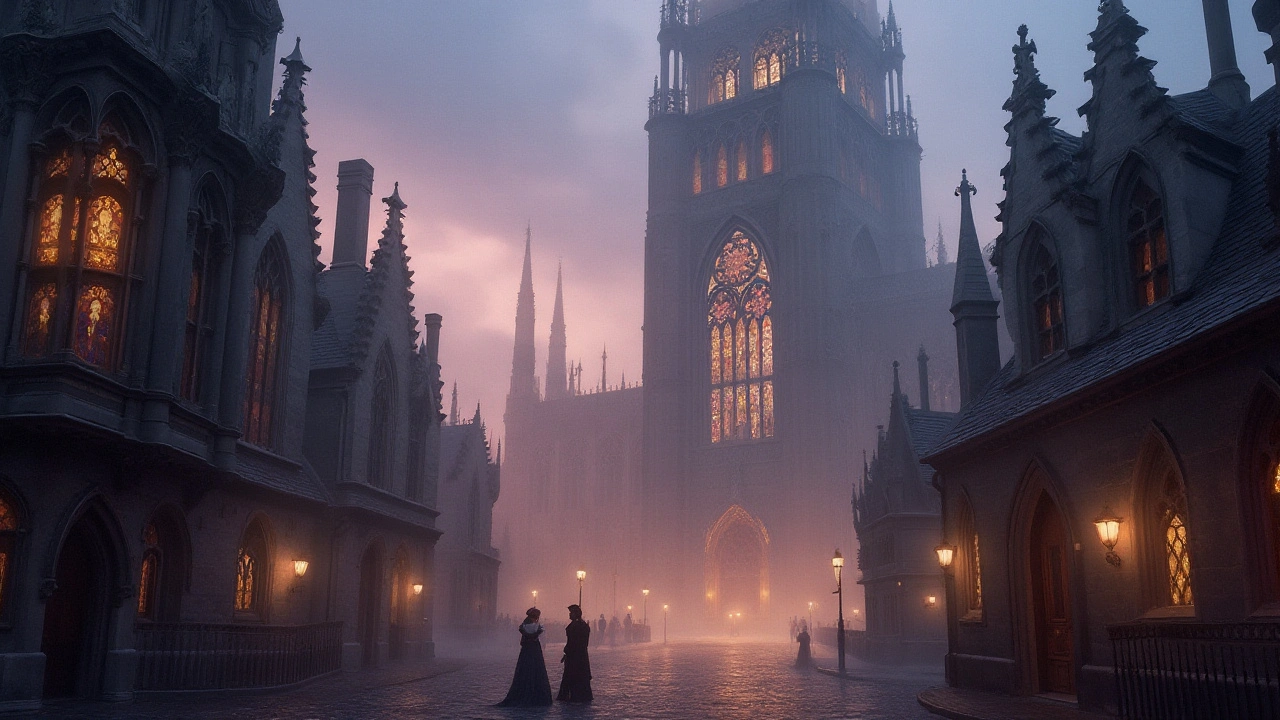
Unveiling the Dark Allure of Gothic Architecture
Gothic architecture stands as a testament to the creative genius of the medieval period, characterized by its soaring spires, intricate sculptures, and mesmerizing stained glass windows. This style emerged in 12th-century France and quickly spread across Europe, leaving behind awe-inspiring cathedrals and churches. Despite its ominous name, Gothic architecture exudes a unique romance and grandeur that captivates visitors even today. Its design elements are not just for aesthetics but serve functional purposes, an intriguing blend of beauty and engineering. Join us as we explore the captivating elements that define Gothic architecture's legacy.
Read more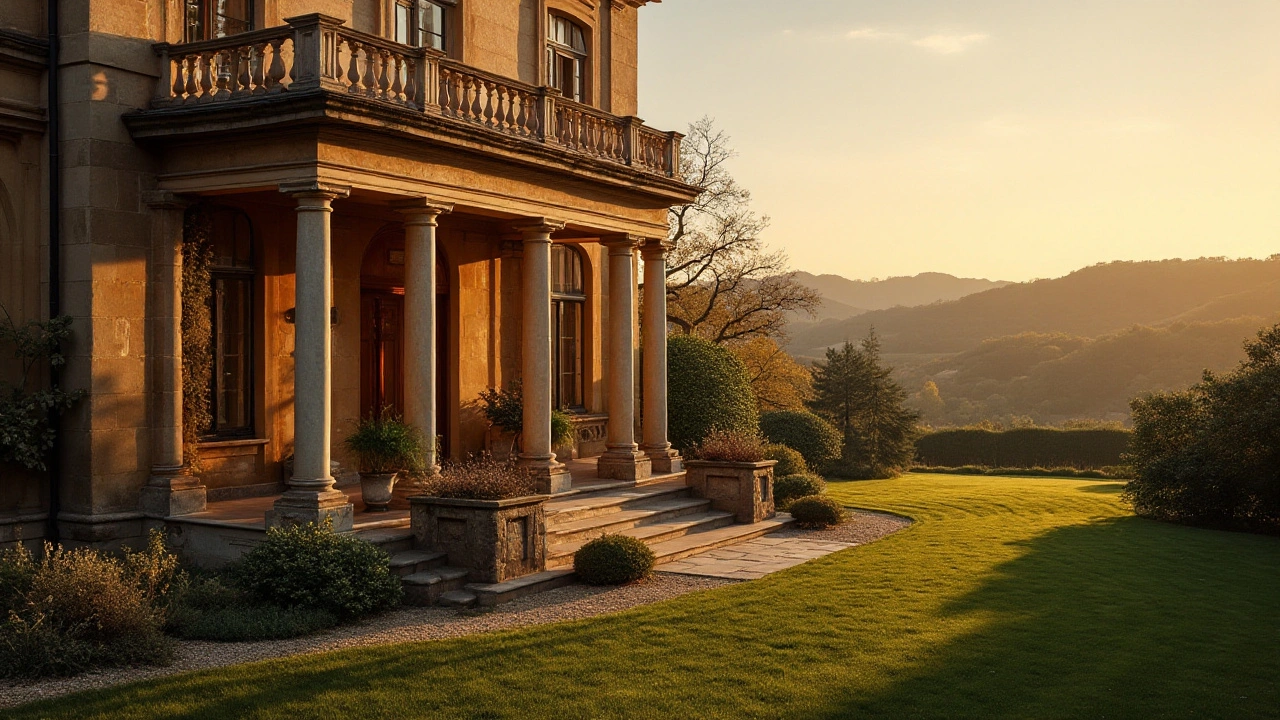
Exploring Italianate Architecture: History and Cultural Significance
Italianate architecture emerged in the 19th century as a distinctive architectural style inspired by the classical villas of Italy. This style became popular in both Europe and North America, characterized by its elegant and ornate detailing, and marked by features like wide eaves, columns, and arched windows. Italianate architecture tells a story of cultural exchange and adaptation, influencing domestic and public buildings worldwide. Discover the history, characteristics, and cultural impact of this captivating style that continues to enchant architects and enthusiasts alike.
Read more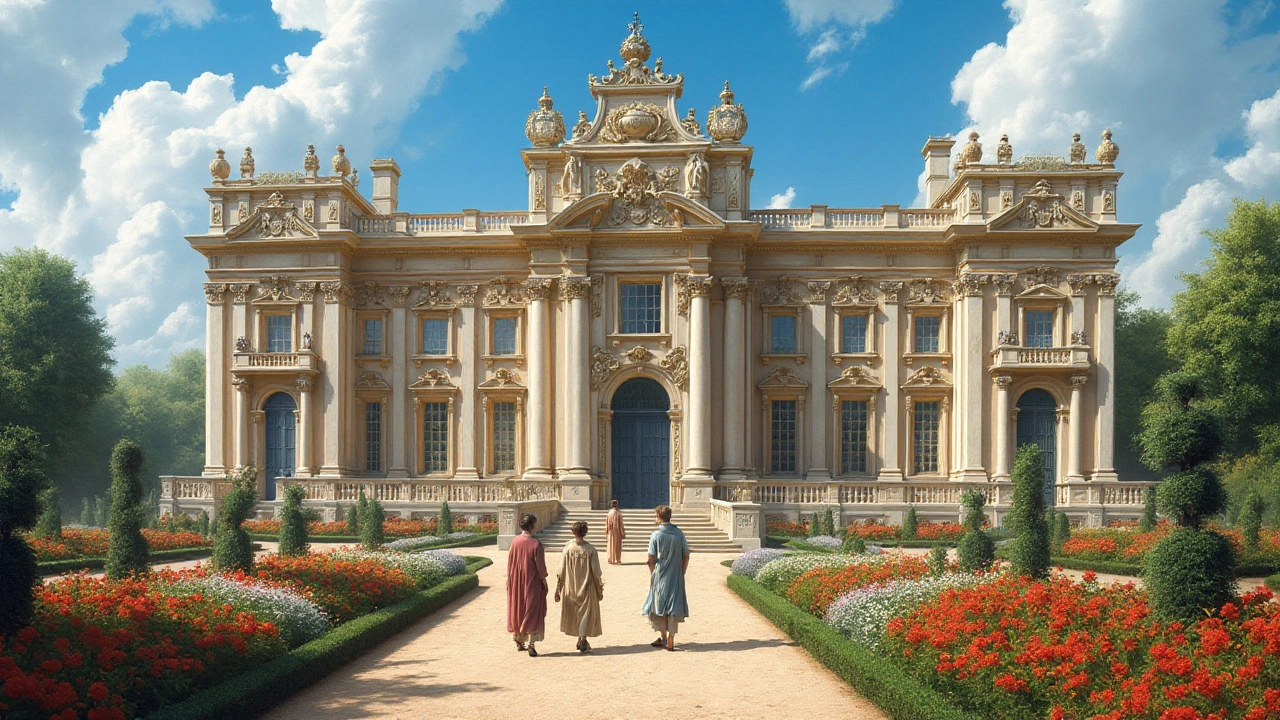
Luxury and Opulence: Unpacking Baroque Architecture
Baroque architecture emerged in the late 16th century, marking a flamboyant shift from the restrained styles that preceded it. It is characterized by bold contrasts, extravagant ornamentation, and dynamic forms designed to evoke emotional responses. This architectural style spread across Europe and later to Latin America, often associated with the Counter-Reformation as the Catholic Church sought to convey its grandeur. Baroque remains a powerful symbol of luxury and can still be seen in many palaces and churches. Understanding the intricate details of this style offers insights into the cultural and historical contexts that shaped it.
Read more
Embracing Deconstructivism: Unleashing Architectural Chaos
Deconstructivism challenges traditional architectural norms by celebrating disarray and fragmentation. This movement emerged in the late 20th century as architects sought to break free from conventional forms and embrace unpredictability. It highlights the beauty found in asymmetry and non-linear designs, with iconic structures like Frank Gehry's Guggenheim Museum exemplifying its principles. Understanding deconstructivism offers insights into how it reshapes our definition of space and design.
Read more
Exploring Byzantine Architecture: A Journey Through Ancient Artistry
Dive into the mesmerizing world of Byzantine architecture, a blend of art and engineering that flourished in the Eastern Roman Empire. Learn how this architectural style transformed iconic structures with grand domes and ornate mosaics, influencing generations to come. From the awe-inspiring Hagia Sophia to the hidden gems across Europe and the Middle East, appreciate the rich heritage and craftsmanship of Byzantine architects. Understand its key elements and the historical significance it holds even today.
Read more